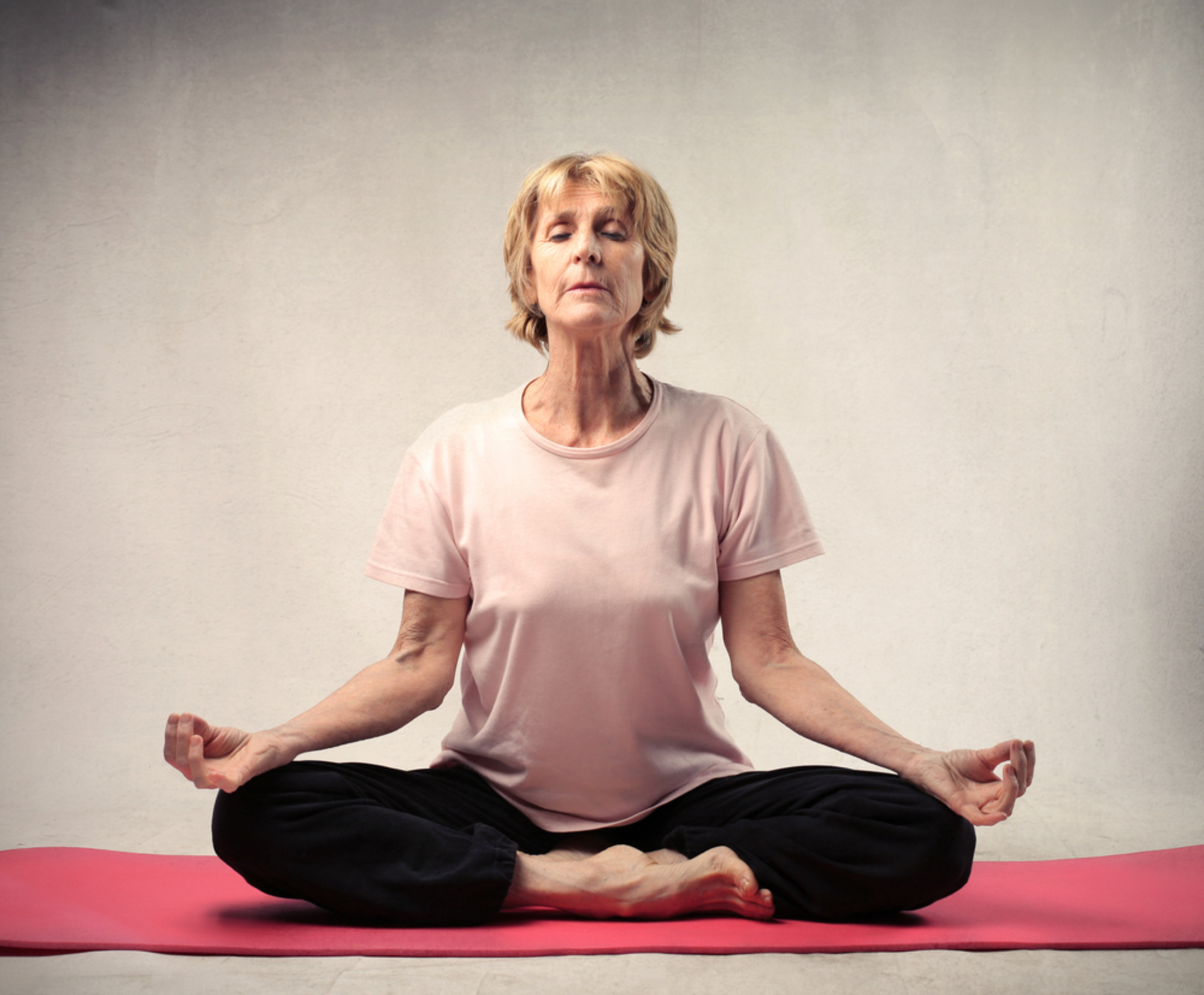If you’ve been feeling worn out or longing for more peace and balance in midlife, know that many women share the same experience. So many women feel pulled in different directions because of stress, expectations, other people’s needs, and changing priorities.
That’s where spiritual self-care and practices can make a meaningful difference. It’s not about strict routines or religious rules. It’s about reconnecting with your breath, values, faith, body, and purpose. This type of self-care helps you slow down and tune inward.
It supports self-reflection for growth, renews your energy, and offers daily peace. Without requiring you to change your beliefs. Spirituality and religion can work together or separately, depending on what feels most true for you.
In this blog, I’ll discuss 10 meaningful spiritual practices and self-reflection exercises. Each is simple and accessible, created to support women moving through midlife with more clarity and care.
Dr. Gala’s Quick Take
YES, there are 10 spiritual self-care and self-reflection exercises that help daily growth and peace. These exercises include meditation, journaling, gratitude practice, and mindful breathing.
Understanding Spiritual Self-Care

Self-care is a form of inner hygiene. As we care for our bodies and minds, we must also tend to our spirits. This doesn’t have to involve organized religion (though it can, if that resonates with you).
Spiritual self-care is making time to pause, connect with yourself, and refresh your spirit. This approach emphasizes personal growth, presence, intentional insight, and finding meaning. Often through stillness, nature, compassion, or mindful movement. Taking moments for self-reflection exercises can deepen this connection and foster resilience.
These practices help us stay grounded in a noisy world and aligned with our inner wisdom. They’re essential for managing the emotional ups and downs of midlife. Self-care is not selfish. It’s how you restore your energy. That way, you can care for others with a whole heart and steady presence.
Research has shown that incorporating spiritual practices into daily life improves emotional balance and mental clarity. These practices also support long-term health outcomes, especially for women over 40.
And for women dealing with stress-related symptoms, consistent mindful awareness combined with gentle spiritual care routines can make a measurable difference. You might even consider watching a short self-reflection video to spark awareness and intention.
10 Spiritual Practices to Support Daily Self-Care and Growth
Each of these practices offers a doorway to presence and peace. Choose one to begin with and give yourself permission to explore what feels most supportive to your unique journey.

1. Contemplation
Contemplation is the quiet art of thinking deeply. It’s a pause to consider what matters most: your values, your growth, your desires.
This focused self-reflection for growth strengthens emotional resilience and unlocks deeper wisdom. When practiced regularly, contemplation helps you feel more centered and self-directed.
Try this: sit quietly for 5 minutes and engage in self-reflection exercises on a single question, like “What am I being called to release?” or “Where do I feel most at peace?” Try keeping a journal to notice your thoughts and see how you grow.

2. Spending Time in Nature
Nature offers immediate spiritual care for the soul. Whether walking barefoot in grass, tending a garden, or watching waves roll in, the natural world grounds you.
It helps soothe your nervous system and ease inflammation. More importantly, it reminds you that you’re part of something vast and wise.
Even 10 minutes outdoors can reset your stress response. And, helps you feel reconnected to your values, faith, and place in the world.

3. Non-judgement
Judgment, especially self-judgment, is one of the biggest drains on our energy. Practicing nonjudgment means releasing labels and letting go of the need to evaluate yourself and others constantly.
This doesn’t mean you ignore boundaries or preferences. It simply means you stop judging yourself and other people, creating space for more grace. Emotional healing begins when we stop criticizing and start witnessing.
4. Regular Acts of Compassion

Kindness is a form of inner medicine. Small, intentional acts, whether checking in on a friend, smiling at a stranger, or offering help, open your heart.
Compassion shifts your focus from internal stress to external connection. When you offer kindness to other people, your brain releases feel-good hormones like oxytocin.
Paired with regular self-reflection for growth. This deepens your sense of purpose and strengthens your emotional resilience.

5. Reading an uplifting book
The right words can become sacred companions. Literature, poetry, and wisdom texts can stir the heart and clarify the mind. Reading is one of the most accessible spiritual self-care practices, offering comfort and perspective.
Try this: keep a book by your bed or in your bag that lifts your spirit. Even a single page can shift your entire day.

6. Silence
Silence isn’t just the absence of noise. It’s the presence of awareness. We create space for intuition and inspiration when we allow ourselves quiet moments. Silence can be found early in the morning, during a walk, or by turning off background noise.
In this space, you’ll hear the gentle guidance that often gets drowned out by daily life.

7. Letting go
Letting go is an act of courage and trust. Whether it’s an expectation, a painful memory, or a relationship that’s no longer serving you.
Release is necessary for growth. Letting go creates a vacuum that the universe will rush in to fill. We open ourselves to joy, relief, and new beginnings when we loosen our grip.
Start small, write down one thing you’re ready to release, and imagine it dissolving in light. This is one of the most effective self-reflection exercises for emotional clarity.

8. Meditation
Meditation is one of the most well-researched spiritual practices for reducing stress, improving focus, and enhancing emotional clarity. It quiets the mind and restores your sense of calm.
You don’t need to meditate for hours. Even 5 to 10 minutes of focused breathing or guided imagery can create a profound shift. This practice invites a peaceful presence into your day.

9. Yoga, T’ai Chi, and Similar Disciplined Practices
Spiritual self-care also includes movement that connects the body to breath. Practices like yoga and T’ai Chi combine physical health with mindful awareness.
They help release tension, increase flexibility, and foster a sense of inner alignment. These disciplines are especially powerful for women in midlife. Supporting hormonal balance and emotional steadiness.

10. Chanting
Chanting may feel unfamiliar at first, but it’s deeply grounding. Repeating sacred words or affirmations out loud can create healing vibrations in your body. It also anchors your focus, calms racing thoughts, and supports emotional release.
I recommend Bhakti yoga as a beautiful form of chanting. But even a favorite uplifting song can serve this purpose, especially when sung with intention. Some people find that certain lyrics help them connect more deeply with their spirit.
Integrating Spiritual Practices Into Daily Life
These practices are not meant to be checked off like tasks. They’re invitations, reminders to return to yourself through quiet self-reflection exercises amid busy days.
Even the smallest moment of stillness, kindness, or self-reflection exercises can shift your mood and reset your perspective. Start with one or two practices that feel right, and take time to explore them without pressure.
Using a journal can be a helpful way to record your experiences and insights along the way. Trust your intuition to guide you toward what you need, movement, meditation, or time in nature.
Anything that reconnects you to your inner values and faith. You might weave these spiritual care practices into morning or evening routines or use them to pause during moments of stress.
The goal isn’t perfection, it’s presence. It’s making space to breathe, reflect, and come home to yourself repeatedly. Many women find that keeping a self-reflection journal or watching a short self-reflection video helps them stay consistent with these practices.
Nurturing Your Spirit Through Life’s Changes
Spiritual self-care isn’t about doing more. It’s about doing what matters. These 10 spiritual practices invite presence, contemplation, and realignment. They aren’t about achieving perfection but about living with purpose and compassion.
If you’re navigating midlife changes, struggling with stress, or needing to reconnect. Let these practices become part of your daily rhythm. Remember, self-care is not selfish. Even if other people have grown used to you putting yourself last.
When you take the time to care for your spirit, you naturally show up with more kindness, patience, and strength. This supports not only your loved ones but also your own well-being.
Consistent self-reflection for growth helps you trust your inner voice and stay connected to the values that matter most.
“If you came into my office, I’d ask you a lot of questions that would help us connect the dots … so that together we can deal with your toxic stress.
Every situation is unique and you need a plan that works for you. Not a one-size-fits-all solution.
If you’re thinking you can’t come into my office, don’t worry. I’ve created a program with all of my initial recommendations to help you unravel the mystery. You can use it at home and at your convenience.
So if you’re thinking that managing chronic stress just isn’t possible … or even the answer … for you, I want to show you what you may be missing.
And how you can identify the toxic stressors that are creating your symptoms with my Human Energy System Reboot. You can get started HERE.” – Dr. Gala













